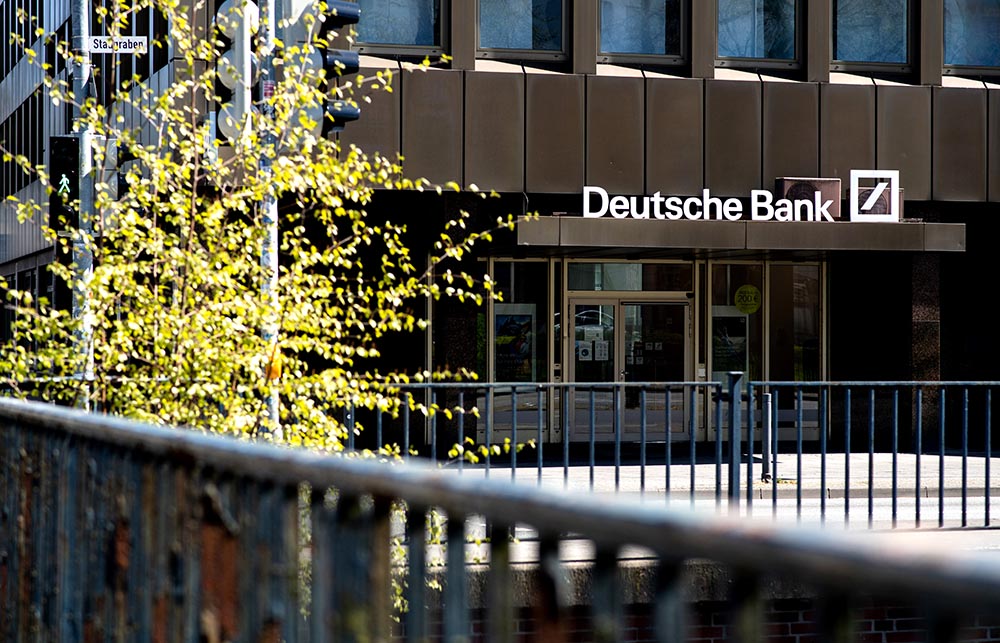
两年前,德意志银行(Deutsche Bank)的首席执行官克里斯蒂安·泽温做了一项改变命运的决策,或许能够解释它们为何可以在今年的对冲基金大爆仓中保全自身。
当Archegos资本管理公司于今年3月出现惊天爆雷时,有报道称其创始人比尔·黄也曾经向德意志银行贷过一笔40亿美元的款项,用来对冲。但德意志银行在这场风暴中全身而退。4月28日,泽温表示,成功的秘诀就暗藏在两年前的一项雄心勃勃的资产重组计划中。
2019年7月,这家德国最大的银行决定退出证券业务,并和法国巴黎银行达成协议,将这类主经纪商业务移交给他们的法国同行运营。
在4月28日的季度财报电话会议上,德意志银行的财务主管詹姆斯·冯·莫特克告诉分析师:“我们基本上是在以法国巴黎银行的名义运营这部分业务。”
主经纪商业务是指向高风险投机客——主要就是对冲基金提供各类金融服务,并从中获益。而在比尔·黄爆仓之后,这也成了让整个行业蒙受100亿美元惊天亏损的祸根。瑞士信贷表示,自从20世纪90年代美国长期资本管理公司爆雷、迫使美联储都不得不介入市场以来,这场金融风暴的冲击力度还无人能够望其项背。
作为重组的一部分,德意志银行将这部分业务打包给一个简称为CRU(“资产外贷部门”)的下级单位,以处理一些较为稳定、又比较零碎的贷款和其他所有非核心的业务。
简简单单的托管商
这样的重组意味着,到今年年底、客户业务完全移交至法国巴黎银行负责之前,德意志银行只需要在其主经纪商业务中担任“托管商”的角色。
与瑞银集团等其他备受瞩目的Archegos受害者不同,为比尔·黄这样以“高风险搏高收益”的投资者提供金融服务已经不再是德意志银行的战略重点了。这对该银行长期收入的影响也相当有限,而它们的风格也更加趋于保守谨慎。
冯·莫特克称:“尽管客户业务为我们带来了可观的收益,我们也承担着这些客户业务的风险,因此,在我们向[法国巴黎银行]交接业务的过程中,风险管理非常重要——距离该任务完成还有几个月的时间。”
在Archegos的冲击下,投行界的竞争对手——例如瑞士信贷等,预计都将蒙受高达数亿、甚至数十亿美元的巨额亏损,而德意志银行则汇报了自2014年年初以来最好的季度财报。
在德意志银行16亿欧元(19亿美元)的税前总收入中,精简后的投行部门占比超过一成。这又要归功于空白支票公司强大的承销业务和固定收益交易。
冯·莫特克表示:“在这样的情况下,我们与法国巴黎银行的合作关系——如果可以这么说的话,能够通过协作管理得到加强。”(财富中文网)
编译:陈聪聪
两年前,德意志银行(Deutsche Bank)的首席执行官克里斯蒂安·泽温做了一项改变命运的决策,或许能够解释它们为何可以在今年的对冲基金大爆仓中保全自身。
当Archegos资本管理公司于今年3月出现惊天爆雷时,有报道称其创始人比尔·黄也曾经向德意志银行贷过一笔40亿美元的款项,用来对冲。但德意志银行在这场风暴中全身而退。4月28日,泽温表示,成功的秘诀就暗藏在两年前的一项雄心勃勃的资产重组计划中。
2019年7月,这家德国最大的银行决定退出证券业务,并和法国巴黎银行达成协议,将这类主经纪商业务移交给他们的法国同行运营。
在4月28日的季度财报电话会议上,德意志银行的财务主管詹姆斯·冯·莫特克告诉分析师:“我们基本上是在以法国巴黎银行的名义运营这部分业务。”
主经纪商业务是指向高风险投机客——主要就是对冲基金提供各类金融服务,并从中获益。而在比尔·黄爆仓之后,这也成了让整个行业蒙受100亿美元惊天亏损的祸根。瑞士信贷表示,自从20世纪90年代美国长期资本管理公司爆雷、迫使美联储都不得不介入市场以来,这场金融风暴的冲击力度还无人能够望其项背。
作为重组的一部分,德意志银行将这部分业务打包给一个简称为CRU(“资产外贷部门”)的下级单位,以处理一些较为稳定、又比较零碎的贷款和其他所有非核心的业务。
简简单单的托管商
这样的重组意味着,到今年年底、客户业务完全移交至法国巴黎银行负责之前,德意志银行只需要在其主经纪商业务中担任“托管商”的角色。
与瑞银集团等其他备受瞩目的Archegos受害者不同,为比尔·黄这样以“高风险搏高收益”的投资者提供金融服务已经不再是德意志银行的战略重点了。这对该银行长期收入的影响也相当有限,而它们的风格也更加趋于保守谨慎。
冯·莫特克称:“尽管客户业务为我们带来了可观的收益,我们也承担着这些客户业务的风险,因此,在我们向[法国巴黎银行]交接业务的过程中,风险管理非常重要——距离该任务完成还有几个月的时间。”
在Archegos的冲击下,投行界的竞争对手——例如瑞士信贷等,预计都将蒙受高达数亿、甚至数十亿美元的巨额亏损,而德意志银行则汇报了自2014年年初以来最好的季度财报。
在德意志银行16亿欧元(19亿美元)的税前总收入中,精简后的投行部门占比超过一成。这又要归功于空白支票公司强大的承销业务和固定收益交易。
冯·莫特克表示:“在这样的情况下,我们与法国巴黎银行的合作关系——如果可以这么说的话,能够通过协作管理得到加强。”(财富中文网)
编译:陈聪聪
Two years ago Deutsche Bank chief executive Christian Sewing took a fateful decision that might explain how his firm escaped the financial shock waves of an imploding hedge fund this year.
When Archegos Capital Management collapsed in spectacular fashion in March, founder Bill Hwang reportedly had a $4 billion bet running via the bank. Deutsche was able to extricate itself entirely, Sewing said on April 28, and a clue to the bank's success lies in its ambitious restructuring plan.
In July 2019, Germany’s largest lender chose to exit the equities sales and trading business and consequently struck a deal to move its prime brokerage operations to French peer BNP Paribas.
“We are essentially operating the business on BNP Paribas’ behalf,” Deutsche Bank finance chief James von Moltke told analysts on April 28 during a quarterly earnings call.
Prime brokerage desks, which lend on margin to high-risk speculative investors, were the source of a staggering $10 billion in losses across the industry after bets placed by Hwang soured. Credit Suisse said it knew of nothing comparable since the failure of Long-Term Capital Management (LTCM) in the 1990s that forced the Federal Reserve to intervene in markets.
As part of the restructuring, Deutsche packed the business into a unit known as CRU (short for “capital release unit”) for steady, piecemeal disposal along with all the other activities no longer considered core.
Mere custodian
That meant Deutsche merely had to act as a custodian of its prime finance unit until client operations shift to BNP Paribas at the end of this year.
Unlike other high-profile Archegos casualties such as Switzerland’s UBS, services for such high rollers as Hwang were no longer strategically important to its franchise. Longer-term revenue repercussions for Deutsche were limited and greater caution could be exercised.
“While the client positions are on our balance sheet, we bear the risk of those client positions, hence the importance of risk management through the completion of the transition [to BNP],” von Moltke said. “We’re a few months away from completing that.”
As rivals like Credit Suisse booked charges running into the hundreds of millions or even billions because of the fallout from Archegos, Deutsche reported its best quarter since the start of 2014.
Its slimmed-down investment bank accounted for more than nine-tenths of its consolidated 1.6 billion euros ($1.9 billion) in income before tax, bolstered by a strong underwriting business for blank-check companies and improved fixed-income trading.
“The partnership with BNP Paribas was, if anything, strengthened by managing through this situation collaboratively,” said von Moltke.






